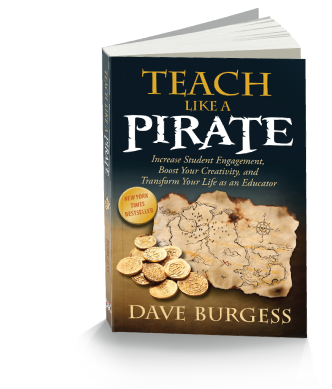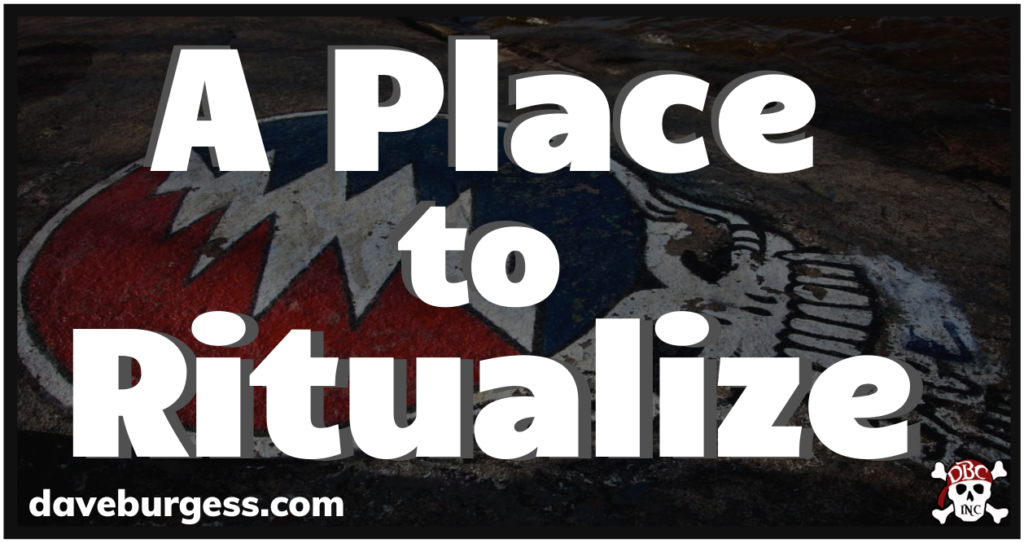In The History of Rock N’ Roll DVD series, Jerry Garcia of the Grateful Dead was discussing the success of their live shows and the Deadhead phenomenon. The Deadheads were a whole group of super-fans and supporters who would follow the Dead from show to show and, at each new venue, build it into much more than a concert but more of a pop-up community. I was struck as if by lightning by what he said. He basically said that it was not necessarily about the Grateful Dead...or even the music...it was that they had created a space for like-minded people to be able to come together and ritualize. People who were maybe seen as weird, oddballs, or misfits by society could come to a Dead concert and say, “Hey! There are others like me! I am not alone.” The music of the Grateful Dead was the soundtrack of the event, it was the ostensible reason for the venue existing, but they were really just another participant who happened to have the best seats...the stage. It was more about this eclectic group of people coming together as a community to ritualize.
As educators, how are we helping our staff and students find or build those spaces? I always hosted multiple clubs in my room at lunch every week. There were some strange ones! I loved them all. It was a place where students who felt disconnected and maybe like a square peg in a round hole out on campus could come and find a safe and supportive environment. A place where, again to quote Jerry Garcia, the “weird ones” could go.
I feel the same way about conferences. It is almost a cliche at this point for conference attendees to say they got more out of the connections they made, the relationships they built, and their shared time outside of session rooms than they did from the formal program. That isn’t a knock on the formal programs of conferences. In my mind, that is validation of how important that “edge” time is.
As we develop our #dbcPIRATEcon (June 12th-14th, 2020!!!), we have tried to create it in such a way that there are ample opportunities for attendees to connect with each other and with our presenters. We have built-in experiences outside of the scheduled sessions for participants to get together with like-minded educators (even in exceedingly small groups at times) and have a unique shared experience. We are exceedingly proud of the incredible line-up of speakers but we also are fully aware that the time on the edges and the relationships will be what many remember for a lifetime.
That is similar to how I feel about the #tlap community and about many of the other “hashtag communities” that have been created to support readers of our books. The book is the start of the conversation. It is perhaps the original reason the hashtag was birthed. But, it becomes so much more. It becomes the place where you can connect with not only the author, but also an entire community of readers who are sharing, collaborating, uplifting, and inspiring each other on the journey. Maybe your ideas are frowned upon in your system or you are not getting the professional development support you need. Maybe you feel alone...an outlier in your area. Maybe your colleagues think you are too “out there” and mock your enthusiasm and passion for your work. There is a place for you. There is a place where you too can say, “Hey! There are others like me! I am not alone.” We are proud to create, build, and lead those communities. It is a huge part of our success.
#tlap is honestly not about me and it is not about my book. It started that way...as a book study that just kept going (Shout out to Chris Kessler!). In 2020, it will have been a Monday night chat for 7 consecutive years. What we have done is create a place to ritualize. We host...we may be on the stage...but it is much more about the community.
It doesn’t have to be #tlap or even Twitter. It doesn’t have to be any of our books or communities. It is about finding your people. It is about finding opportunities to connect and share the same space. That is where and when the magic happens.
If you can’t find that space, maybe that means YOU need to build it. Maybe you need to Make Your Own Snow as I have written and spoken about before. There will be others who need that same space and they will always be glad you showed up.
Dave




